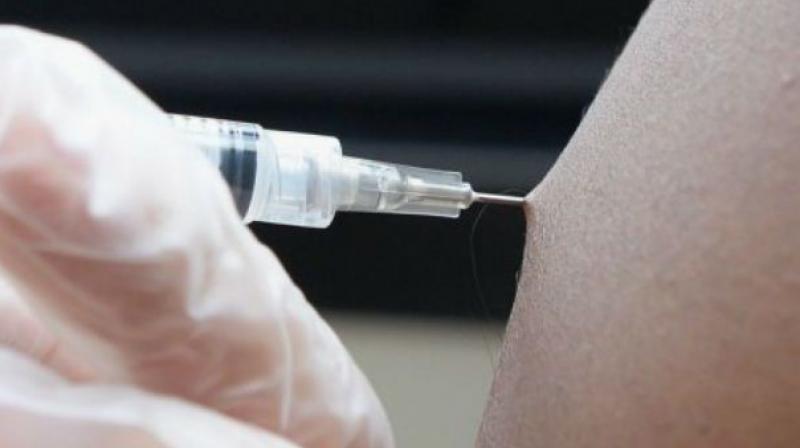Ketamine vaccine may help prevent post traumatic stress disorder
There are few effective therapies for preventing or treating PTSD.

New York: Single dose of ketamine - a drug commonly used as general anaesthetic or a rapid-acting antidepressant - given one week before a stressful event may prevent symptoms of post-traumatic stress disorder (PTSD) and
buffer against a heightened fear response, a new study claims.
The study, conducted in mice, suggests that prophylactic administration of ketamine may also prevent PTSD symptoms in soldiers and others who subsequently experience psychological trauma. "Ketamine is a powerful drug, and we would not advocate widespread use for preventing or reducing PTSD symptoms," said study leader Christine A Denny, assistant professor at
Columbia University Medical Centre (CUMC).
"However if our results in mice translate to humans, giving a single dose of ketamine in a vaccine-like fashion could have great benefit for people who are highly likely to experience significant stressors, such as members of the
military or aid workers going into conflict zones," said Denny.
There are few effective therapies for preventing or treating PTSD, an anxiety disorder that occurs in about one-quarter of individuals who experience psychological trauma. PTSD symptoms include re-living the trauma-experiencing
repeated flashbacks, hyperarousal, and hyperreactivity - as well as mood changes, psychological numbing and chronic physical symptoms such as headache.
The likelihood that symptoms will develop depends on the nature and intensity of the trauma and an individual's response. Previous studies, in both humans and animals, have shown that giving ketamine before trauma can help reduce
stress-related symptoms. However, it was not clear when the drug should be
administered relative to a traumatic episode in order to maximise its protective effects.
In the new study, mice were given a small dose of intravenous ketamine or a placebo either one month, one week, or one hour before they were subjected to a series of small shocks. The mice - conditioned to associate the test environment with the shocks - were later returned to the same environment and assessed for their freezing behaviour, a measure of their conditioned fear response.
Only the mice given ketamine one week before the stressor exhibited reduced freezing when they were returned to the test environment. It is not known whether there is an intermediate window, between one week and one hour, where ketamine would also have a protective effect.
Researchers also found that giving ketamine immediately after the stressor did not affect the animals' fear response. However, giving ketamine one hour after a second shock decreased fear expression, suggesting that there may be another potential window after the initial trauma when the drug may be effective.
The study was published in the journal Neuropsychopharmacology.

